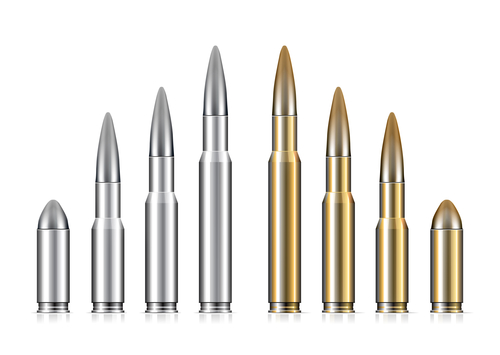When you’re buying ammunition for your gun, several factors may come to mind. Some people are concerned about brand name. Other people are mostly concerned about dependability and consistency in firing. But others are mostly concerned with stopping power.
Now, when many people think about stopping power, they’re often specifically thinking about caliber, and, no doubt, this can make a difference. But some people want a more specific test, and that test is to measure the round’s penetration into the target.
This test is usually referred to as the FBI testing protocol. What is this testing protocol? Richard Johnson describes it this way:
Alternatively called the FBI penetration testing, the ballistics test set can help gauge law enforcement bullet terminal performance in a standardized medium. This allows for a bullet penetration test that is, in theory, repeatable and useful for establishing a known standard of performance in controlled conditions.
A standardized test allows for the direct comparison of bullet performance. Using this test, a law enforcement agency can compare things like hollow point bullet penetration and expansion between two different cartridges before selecting which ammunition to issue its officers.
This is advantageous for anyone who will have to justify the costs of duty ammo to a budget committee or agency head. Likewise, it is a practical place to start for someone looking for the best performing duty ammunition.
The testing itself requires multiple rounds of the ammo load to be shot into a specific mix of ballistic gelatin. Some of the tests are conducted with intermediate barriers placed between the shooter and gel. Bullet velocity, penetration, expansion and weight retention information is collected.
To put that into plain English, the intent of this testing method is measure how far, on average, a certain ammunition penetrates into something if all factors except the ammunition are the same.
Not a bad idea if you want as close to an objective measure of that as you can get. The problem is that real life happens in all kinds of situations, so a test in controlled situations like the FBI protocol can, at best, give you a guess as to the effectiveness of an ammunition in a specific situation. Again, from Johnson:
The FBI penetration test is specifically designed to measure the performance of law enforcementammunition. It was not designed to test for the best self defense ammunition, nor have I ever seen any claims from the agency that it is a good test for measuring self defense loads.
This bullet was recovered after FBI testing though rolled steel. Is it a good indicator of performance for citizens in self defense scenarios?
Nevertheless, the FBI testing is the only widely adopted standard for measuring the performance of handgun ammunition. It is completely understandable why it is the de facto standard for self defense ammo performance even though it wasn’t designed to be it.
While the FBI ammunition test protocol is good, I don’t believe that it is ideal for self defense ammunition. Simply put, what works for law enforcement may not be good for an armed citizen protecting himself against attack.
In other words, while you may find it useful to consider the FBI protocol, the best way for you to make this decision for yourself is to consider the situations that you think that you are most likely to be in, and, then, think about what kind of ammunition will work best for your situation. Then, test it over and over while trying to simulate the variables that you may need covered.
That’s how you’re going to decide on the best ammunition for you.

